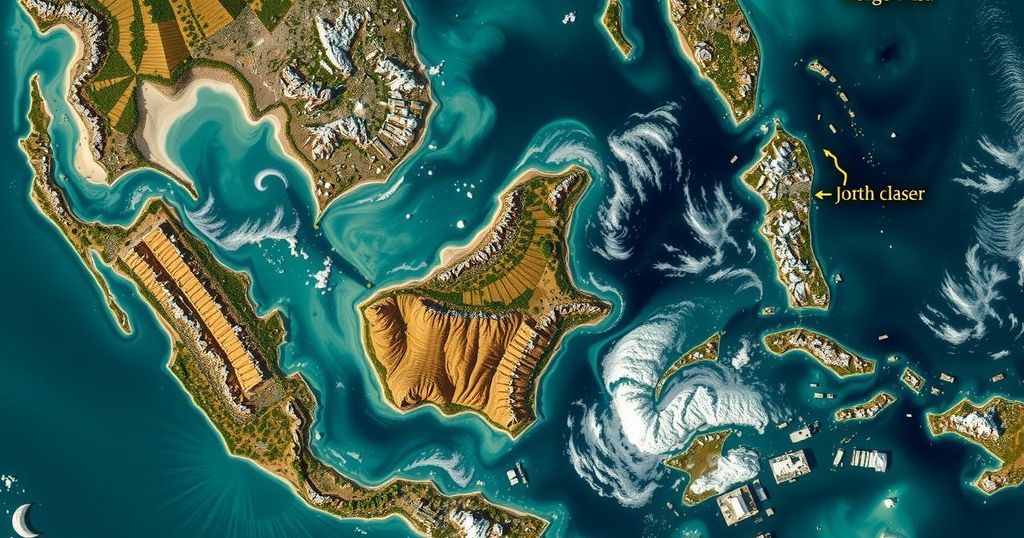Devastation in Agalega and Mayotte from Cyclone Chido: A Call for Action
Tropical Cyclone Chido struck Agalega on December 11, 2024, as a category 4 equivalent cyclone, causing extensive damage and displacing residents. With peak winds of 222 km/h, the cyclone led to significant infrastructural destruction and communication blackouts. After impacting Agalega, Chido continued to devastate Mayotte, where many are homeless and seeking aid amidst ongoing challenges in recovery efforts.
Before-and-after satellite imagery reveals the extensive damage inflicted upon Agalega by Tropical Cyclone Chido, which struck the Indian Ocean island on December 11, 2024. Classified as a category 4 equivalent cyclone, Chido recorded wind speeds of 222 km/h (138 mph) upon making landfall, the strongest cyclone to affect the region since 1983. Both of Agalega’s islands sustained significant destruction, resulting in the damage or total loss of numerous homes and educational facilities, while residents sought refuge at the local airport due to the unprecedented conditions.
Cyclone Chido unleashed gusty winds and storm surges measuring 8 meters (26 feet), causing devastation that severed communication links with the islands. Minister Shakeel Mohamed of Mauritius has reported that a Dornier aircraft from the Mauritian Coast Guard is on its way to provide assistance, joined by an Indian cargo plane expected to facilitate relief efforts.
Following its impact on Agalega, Chido’s path continued towards northern Madagascar, eventually striking Mayotte on December 14. This subsequent impact further exacerbated the situation, as the island experienced torrential rains, severe storm surges, and winds peaking at 220 km/h (136 mph). Critical infrastructure—including homes, hospitals, and the airport—sustained severe damage, and power as well as communication lines were disrupted, isolating the population.
Initial assessments suggest that approximately one-third of Mayotte’s 320,000 inhabitants have become homeless. Relief efforts are hindered by a lack of potable water and medical supplies, complicating recovery operations. Emergency response teams have been deployed, yet access to some afflicted areas remains constrained due to impassable roads and flooding. As of December 16, local officials have voiced concerns regarding a potentially rising death toll, given that hundreds, if not thousands, of individuals are still unaccounted for. The full scope of the destruction and its human impact remain undetermined.
Tropical cyclones are intense circular storms characterized by low atmospheric pressure and high winds, typically forming over warm tropical waters. The most damaging cyclones can result in storm surges, flooding, and significant infrastructural destruction, as observed with Cyclone Chido in Agalega and Mayotte. Both islands faced unprecedented challenges due to the cyclone’s severity, compounding existing vulnerabilities stemming from their geographic characteristics and limited resources. The experience following Cyclone Chido highlights the urgent need for effective disaster preparedness and response mechanisms in regions prone to such extreme weather events.
The catastrophic impact of Tropical Cyclone Chido on Agalega and Mayotte illustrates the devastating consequences of extreme weather phenomena. With significant infrastructure damage reported and a growing humanitarian crisis, the immediate focus lies in delivering aid to affected communities. The situation calls for enhanced disaster response strategies to ensure robust resilience against future storms, emphasizing the critical need for preparedness in vulnerable regions. The full extent of the disaster’s toll remains to be assessed, with many in dire need of assistance.
Original Source: watchers.news




Post Comment